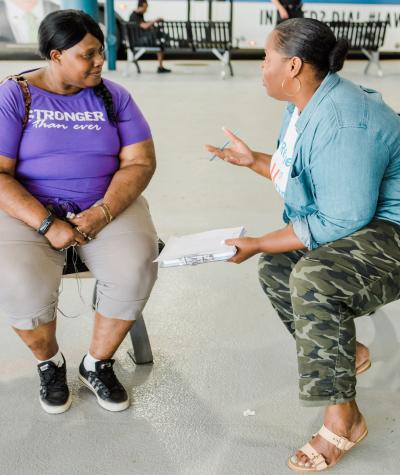On Dec. 3, 2020, Campaign Legal Center (CLC), the Tennessee Conference of the NAACP, and five Tennessee residents – who tried to restore their right to vote in November’s general election but were denied – filed a lawsuit challenging the systemic failure of Tennessee’s voting rights restoration process.
Our most fundamental right as Americans is the right to vote, but for far too many people, that right is being denied because of a process that is freezing out communities that have long struggled for equal access. The Tennessee legislature created a pathway for people with felony convictions to restore their rights, but these officials have failed to create a system that works.
Tens of thousands of Tennesseans are eligible for a Certificate of Restoration (COR) and, as a matter of law, have the right to restore their vote upon request. Yet to date, only a small fraction of those individuals have been able to receive their CORs and restore their voting rights because the process as administered by Defendants is unequal, inaccessible, opaque, and inaccurate.
Over 451,000 Tennesseans have the lost the right to vote because of felony convictions, accounting for 9.1% of the total voting age population but nearly 80% of those individuals have completed their probation and parole and are potentially eligible to restore their voting rights.
Unfortunately, fewer than 5% of potentially eligible Tennesseans are ever able to acquire a completed COR and submit it to the Elections Commission for approval. The election division reports that only 3,415 individuals have been granted CORs since 2016 – less than 1% of the post-sentence population.
Felony disenfranchisement disproportionately harms Black people and other communities of color. One in five Black people in Tennessee can’t vote because of past convictions – the second highest rate of Black disenfranchisement in the country. Also, it affects one in ten Latinos – the highest rate of Latino disenfranchisement in the country.
The suit, filed in the U.S. District Court in the Middle District of Tennessee, alleges that defendants violate the U.S. Constitution’s requirements of procedural due process and equal protection, as well as components of the National Voter Registration Act. In addition to CLC, the parties are also represented by Free Hearts Tennessee, Baker Donelson, and Equal Justice Under Law.
